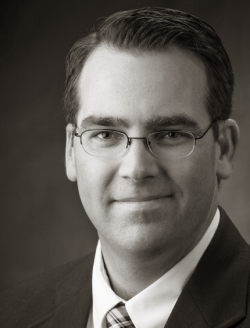The Power of Vulnerability

September 30, 2020
by Bryant Thompson, Weber State University, associate professor, business administration
About 10 years ago, Brené Brown gave one of the most popular Ted Talks ever given on that platform. She spoke on the power of vulnerability. Ironically, immediately after her talk, she was overwhelmed by her own excruciating vulnerability — she was embarrassed to have given the talk and wished she could just pretend it never happened. The talk has now had nearly 50 million views and has transformed the way individuals and organizations think about vulnerability.
Vulnerability, according to Brown, is the willingness to embrace some uncertainty, risk and emotional exposure. It is not easy to experience vulnerability, but, by being vulnerable, we are better able to satisfy our inherent human needs of feeling known, seen and understood.
I recently co-authored “Vulnerability in the Classroom: A Catalyst for Subjective Well-Being, Empathy, and Learning” in the Business Education Innovation Journal with research colleagues Cory Moss, Travis Simkins and Todd Woodruff. The article described the results of an innovative assignment for students in a Weber State University business course. It is an extension of a leadership assignment used at West Point, where I taught previously. We asked students to share and analyze defining moments of struggle and triumph on concepts such as grit, resilience, forgiveness, emotional contagion, motivation, compassion, empathy and a growth mindset. They then had to explain how they overcame a specific episode of adversity.
As expected, this assignment created some strong dissonance for students. In fact, one student said she almost dropped the course when she first learned about this assignment, but was so glad she didn’t.
“Doing this and seeing my classmates do the same thing with their struggles helped me realize that even when life is incredibly challenging, humans are resilient, brave, and strong,” she reflected after.
Students chose some pretty heavy topics such as overcoming addiction; going through a divorce or observing parents go through a divorce; living in a foreign country; being laid off, arrested, bullied; failing a class; enduring social shaming due to differing religious or political views; enduring hateful behavior on the basis of race, gender or sexual orientation; seeing loved ones suffer through emotional or physical illness; or losing loved ones to suicide and other causes.
This can be an uncomfortable assignment. It requires great courage, weeks of thoughtful preparation, and often prompts raw emotional responses. “At first, it wasn't pleasurable,” one student reported later. “I cried when I worked on it. Over time, however, I started finding the positive of my experience and truly felt the positive feelings it started to give me. This was very therapeutic.”
Student responses to this assignment were fascinating. Students reported experiencing increases in well-being, empathy and learning. “The vulnerability I experienced while presenting my journey line was healing,” one student wrote. “By being vulnerable about my experiences, I was able to share more of who I was with the class. It finally brought about feelings of acceptance and an opportunity for growth.”
With regard to empathy, another student wrote, “When I was listening to my peers' presentations, I gained an entirely different understanding of them that I would have not gotten with just our interactions in class. I gained respect and empathy for my peers as I learned the trials and triumphs they experienced in their lives. I learned that we all suffer in unique ways.”
Another realized that being vulnerable and having to relate it back to theory helped the student understand that hardships can produce positive outcomes. “I am now able to look back on those moments and not feel as much sadness or anger and feel more understanding. I learned how to process my past by connecting it to course concepts.”
Amid unique life circumstances that have heightened stress levels and elevated mental health concerns, students and others might consider healthy ways to be vulnerable with trusted friends, colleagues and loved ones while offering to listen to their struggles with warmth and compassion — it may lead to increases in well-being, empathy and learning. It takes great courage to be vulnerable, but the reward is often connection — a precious resource in a world where a host of uncertainties are driving disconnection.
ABOUT THE AUTHOR

Bryant Thompson is an Eccles Fellow and associate professor of Business Administration at Weber State University’s John B. Goddard School of Business & Economics. He received his Bachelor of Integrated Studies from Weber State University and Ph.D. from the Darla Moore School of Business at the University of South Carolina. Prior to returning to Weber State, he taught leadership at the United States Military Academy at West Point.
